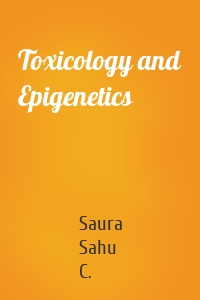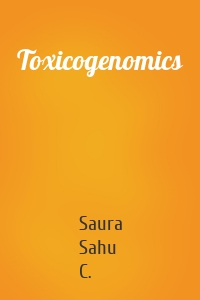Saura Sahu C.
4 кн.
Toxicology and Epigenetics
Epigenetics is the study of both heritable and non-heritable changes in the regulation of gene activity and expression that occur without an alteration in the DNA sequence. This dynamic and rapidly developing discipline is making its impact across the biomedical sciences, in particular in toxicology where epigenetic differences can mean that different individuals respond differently to the same drug or chemical. Toxicology and Epigenetics reflects the multidimensional character of this emerging...
| Автор | Saura Sahu C. |
Toxicogenomics
Toxicogenomics is the integration of genomics to toxicology. This technology is a powerful tool for collecting information from a large number of biological samples simultaneously and thus it is very useful for large-scale screening of potential toxicants. Toxicogenomics: A Powerful Tool For Toxicity Assessment provides up-to-date state-of-the-art information presented by the recognized experts, and is therefore an authoritative source of current knowledge in this field of research. The...
| Автор | Saura Sahu C. |
Hepatotoxicity
This book addresses all the current, up-to-date developments in this scientific discipline. Liver is the chief metabolizing site in the body, and thus, it is a major target organ for drug and chemical toxicity. Therefore, hepatotoxicity is an important endpoint in the safety evaluation of drugs and chemicals. Contributions from leading investigators in hepatotoxicity research address current developments in this scientific discipline and discuss use of current cutting edge technology such as...
| Автор | Saura Sahu C. |
Nanotoxicity
Nanomaterials – substances smaller than 100 nanometers in size – have been added in recent years to an increasing numbers of consumer products used in day-to-day life; in food packaging, medical devices, pharmaceuticals, cosmetics, odor-resistant textiles and household appliances. The extensive application of nanomaterials in a wide range of products for human use poses a potential for toxicity risk to human health and the environment. Such adverse effects of nanomaterials on human health have...
| Автор | Saura Sahu C. |





